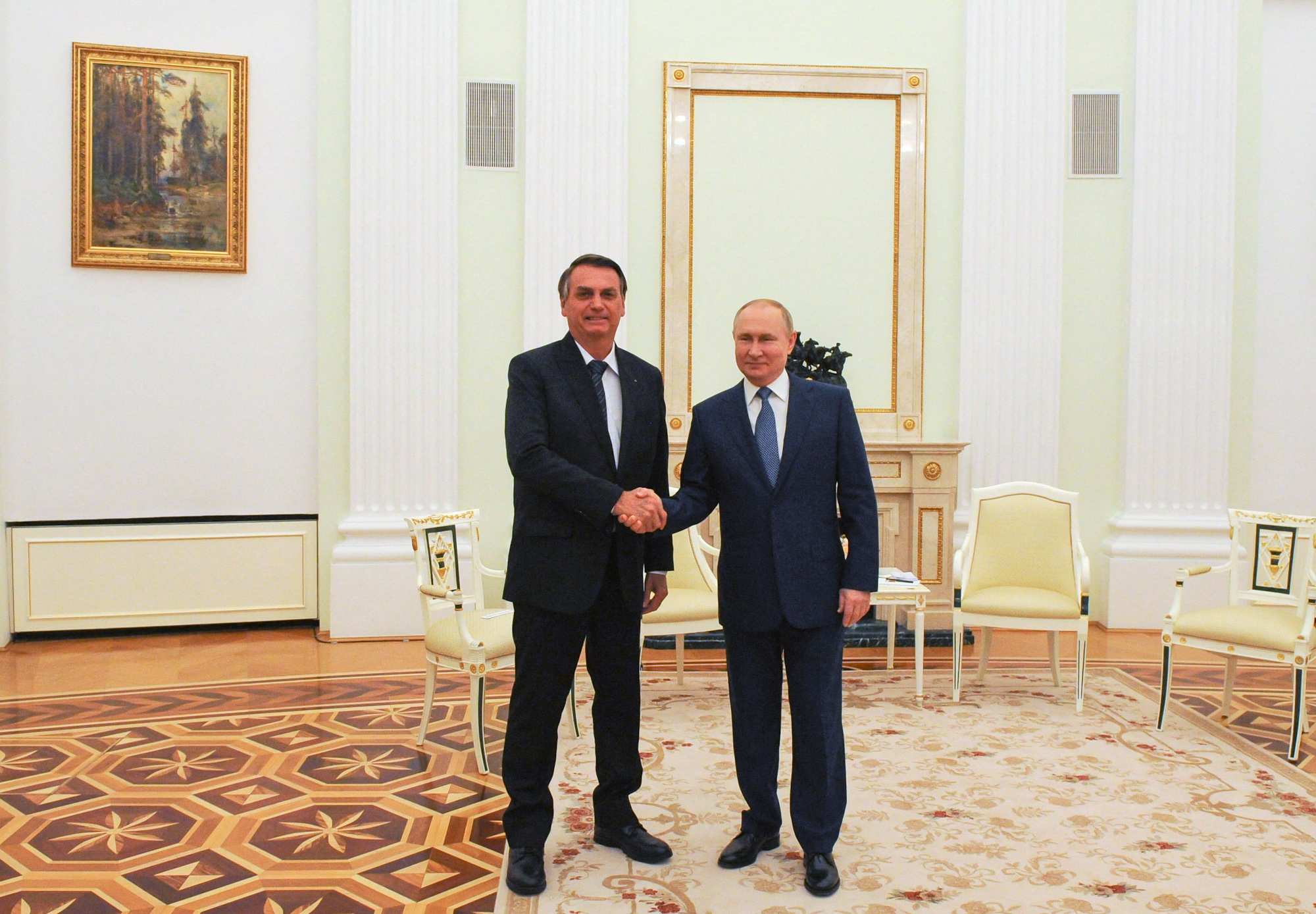Countering Moscow’s Influence in Latin America

“The presidents of Argentina and Brazil, Alberto Fernández and Jair Bolsonaro respectively, have not directly condemned the Russian invasion of Ukraine. Their silence is not surprising, as the two visited Moscow in February amid escalating tensions over Russia’s troop buildup on the Ukrainian border…
…
“Argentina and Brazil have a historical economic rivalry, and both are moving away from democratic partners to seek alliances with authoritarian governments. Russia is not the only hegemon interested in the region. China won a diplomatic victory when Argentina officially joined its Belt and Road Initiative (BRI). And despite Bolsonaro’s antagonistic rhetoric toward Beijing, the two maintain strong economic ties and the diplomatic relationship could improve if former President Lula da Silva wins the 2022 presidential election. During Lula’s presidency, Brasilia considered Beijing a strategic and economic partner.
“Given a rise in authoritarianism in the Latin American region, most recently in El Salvador and Honduras, countering the Kremlin should be a priority for Washington. As Argentina and Brazil are currently on a fine line between democracy and autocracy, they can disrupt democratic institutions in the region…
“Surprisingly, during the United Nations General Assembly resolution on Russia’s aggression against Ukraine, Argentina and Brazil voted in favor of the resolution, changing their initial silence/neutrality approach. The Kremlin is further isolated by its invasion of Ukraine, so this is an opportunity for Washington to push back on malign actors and strengthen its relations with Argentina and Brazil. Washington should encourage alliances between democratic countries in the region. To illustrate, the current Alliance for Development in Democracy, comprised of the democratic states of Costa Rica, Dominican Republic, and Panama, promotes economic recovery, multilateral solutions to the migration crisis, and strengthening democratic institutions. Vibrant institutions are a critical component of a strong democratic state and the backbone of an independent judicial system. Weakened judicial systems, such as in Peru and Bolivia, open the door to democratic backsliding, human rights violations, and authoritarian actors.
“Moscow’s diplomatic gains in Latin America represent a challenge to democracy and Washington’s regional interests. To confront it, Washington must prioritize the Alliance for Development in Democracy which, as a bloc, could become the United States’ third most important trading partner…”
Top